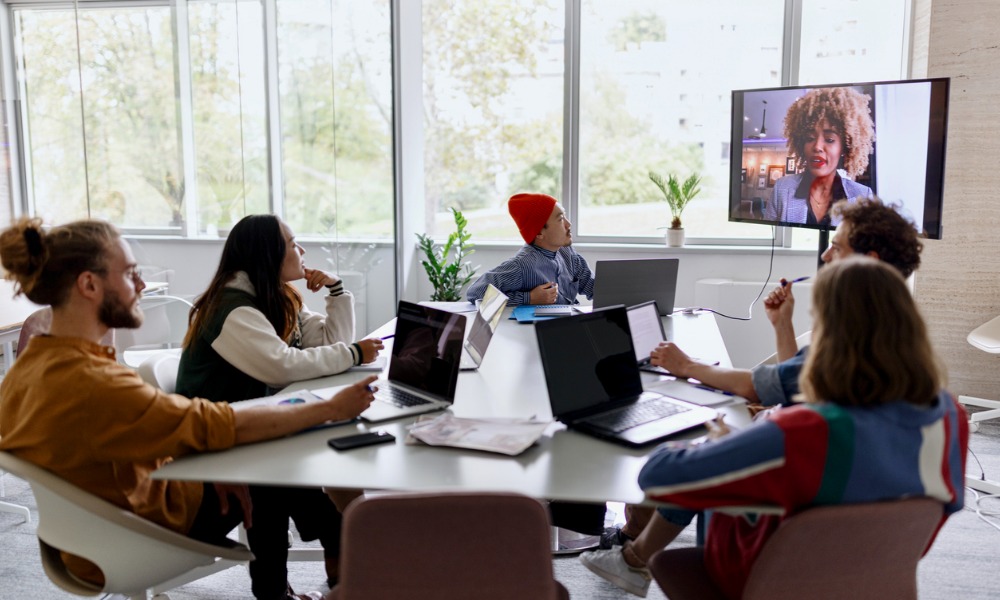
But hybrid work still most popular with younger workers

A new report has found that only 11% of Gen Z employees want to work remotely full time.
Research from software provider Cloudbooking revealed that Gen Z employees from the UK and the US are the least likely out of all workforce generations to prefer full-time remote work.
The findings come as 41% of the respondents between ages 18 and 24 said home-life pressures are making it difficult to work from home.
This contrasts with the findings for respondents between ages 45 to 54, where 33% agreed that remote work is their ideal working environment, and 65% of the respondents said home pressure did not affect their ability to remain productive while at home.
Previous research from Unispace suggested that many Gen Z employees still prefer physical workplaces and want to see their colleagues there — despite the fact that many Gen Z employees grew up stereotyped as "digital natives.”
However, younger employees' inclination against remote work could be attributed to their desire for a sense of community and networking opportunities in the workplace, according to Cloudbooking's study.
"Employers should be careful not to jump to conclusions about worker generations," said Gerry Brenna, CEO of Cloudbooking.
"Gen Z-ers, for example, are more likely to have a negative view of working only from home because they want the connections and mentorship experience of the traditional office."
But refusal to work remotely full time does not mean employees want to go back to the office, according to the report.
A majority (65%) of Gen Z employees said they want the flexibility offered by a hybrid working environment, similar to the overall average of 64%.
Overall, 67% of the respondents said they are less likely to work for an organisation that does not offer hybrid work, compared to 53% of Gen Z.
"Employers must accept that the future of work is about choice — employees choosing where they do their best work, choosing to work when they feel most productive and choosing to be in the office when it suits them most," Brennan said.